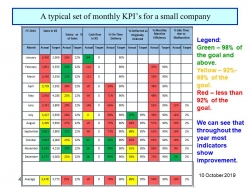Links to articles about salaries, incentive pay, and bonuses can be found at the bottom of the article.
Does everyone know what other people earn in your company?
If the answer is “yes”, is it official information or is it spread by word of mouth?
What effect does knowing what other people earn have on gender pay? How does it affect employee’s motivation?
It feels unfair
We are never paid enough. We always want to be paid more. In the words of Ecclesiastes: “No man leaves this world with half his lust in his hand”: (Ecclesiastes Rabbah chapter A). When we receive our pay, knowing how much our friends and colleagues earn plays a big role, because how much we earn, relatively to others, is perceived as a sign of our worth.
People working in private businesses compare salaries all the time. If they find they are paid less than their colleagues, they become angry and frustrated. They always believe they are undervalued and misjudged because of personal, resentful attitudes of their superiors. Anger and frustration are immediately translated to lack of motivation and very often to leaving the company.
The situation is different in Government and publicly owned organizations, in which salary criteria, such as position, managerial level and other work-related factors are applied. Employees in these organizations know and accept the salary terms. For example, the IDF uses a clear salary scale. Rank, experience, and position are taken into account. But even in the IDF, an officer who is not promoted will pin it on favoritism and his personal relations with his commanders.
The same situation occurs with teachers. Seniority and adding extra roles enable teachers to earn higher salaries, and though I am not fully familiar with the facts, I hear claims that teachers’ salaries are determined more by rank and seniority, and less by excellence and success. As a result, good teachers leave the education system with strong feelings of unfairness.
CEOs prefer to keep it confidential
Naturally, CEOs wish to determine salary level free of pressures that might occur due to pay transparency. But employees talk to each other. They share information, compare experiences and sooner or later, find out what everyone earns. CEOs also wish to pay as little as possible, but at the same time they must maintain the work force and attract new people to work for the company. I don’t know any firm in which the salaries are kept in complete confidentiality.
It is worth mentioning here that generally, women are paid less than men.
It happens for two reasons:
First, because women ask for less money than men when applying for the same job. Secondly, because women are less likely to leave a job due to low pay or feelings of injustice.
In a company I worked for, employees discovered that one of the female team members was paid substantially less money than her female colleague. Knowing that she was earning less had a negative impact on her performance. She became bitter and under motivated. She started to exhibit disciplinary problems.
The CEO highly valued the performance and contribution of the better paid employee and wanted to keep her in the company. But the other employee believed she was performing similar tasks and therefore deserved equal pay.
When it happened, the CEO did not acknowledge the inequality. He was only concerned with the ways the information had leaked out.
Minimum Wage and disappointed employees
Minimum Wage is updated and published by the Israeli government every few years. It is not my intention to discuss now whether Minimum Wage is beneficial or not. I will only refer to its effects on transparency of pay.
While Minimum Wage improves the earnings of lower paid and new employees, it eliminates the differences between new and skilled employees pay. In other words, employees who were rewarded higher pay for their excellent performance and experience, suddenly find themselves earning the same money as employees who just joined the firm.
Even though Minimum Wage does not reduce the salaries of experienced, skilled employees, they become disgruntled and unhappy. They feel they have earned their worth over many years of hard work and loyalty. They believe that newcomers should not earn the same.
Public debates are always provoked when Minimum Wage is published in the media. It cannot be concealed from employees, even in companies which practice a pay transparency policy. Everyone knows that the difference between new and veteran employees pay had disappeared.
Skilled, experienced employees consider it as the epitome of injustice.
Research regarding pay transparency, gender pay discrepancies and the connection between pay and performance
The Marker magazine published an article by Eitan Avriel at the beginning of February. It was named: “Would you like to work for a firm in which everyone knows everybody’s pay?” In the article, Avriel quates a research conducted by Tomasz Obloj, Chair of the Strategy and Business Policy department at HEC Paris and Todd Zenger from the School of Business at the University of Utah, USA.
The research was published under the name: “The influence of pay transparency on (gender) inequity, inequality, and the performance-basis of pay”.
Tomasz Obloj and Todd Zenger took advantage of the fact that salaries of academic staff at some public universities had become common knowledge and it became possible to relate between salaries and performances. For example, the number of academic articles a staff member had published in the academic media.
Tomasz Obloj and Todd Zenger examined data of no less than one hundred thousand employees working in the academia, over twenty years. The results were fascinating though not surprising. They found that pay transparency, where everyone knows everybody’s wages, has a great influence on gender pay differences and on the effect performance has on pay.
They found that in organizations that implemented a pay transparency policy, wage differences between men and women were 45% less (nearly half) than in similar organizations which kept employees’ pay confidential.
This, concluded the research summary and Eitan Avriel article, reinforces many people’s claim that implementing a transparency pay policy may help to adjust gender pay differences – a target considered, in most western countries, fair and essential. It also supports the claim that companies exploit the women’s tendency to negotiate salaries less than men.
Investment of billions of dollars in transparency pay, is therefore justified.
A point to refute the research
The research is extremely important as it highlights the advantages of pay transparency. Paying women less than men is wrong and mistaken. It is easy to decide on equal pay when the same or similar jobs are performed.
However, the weak point of the research is its definition of “performance-basis of pay”. Defining “performance” as the number of academic articles an individual had published is simple, but then how do you measure the performance of office staff or production line employees?
I believe that all job descriptions should be based on liability, responsibility and meeting measurable targets and objectives.
However, can meeting the objectives be considered a parameter to determine pay? Of course not, because, if it is, pressure to set low targets will follow, and low targets are counterproductive to the company’s aim to grow, advance and provide significance and satisfaction to the work force. High targets aim to push the company to greater achievements and success. Objectives should therefore be set high enough to not be easily met.
If pay is determined by meeting targets, employees will constantly look for excuses and blame adverse circumstances to justify their failure to meet their objectives. People will not strive to own responsibility for improvements or promote changes.
Pay transparency - For and Against
For:
Being transparent is always the right thing to do. It enhances trust in management and employees’ engagement with the company goals. If it also reduces gender pay discrepancies, it is paramount.
Against:
Defining performance indexes that will determine pay is complex. Many firms find it difficult to agree on criteria when the length of time an employee has been working for the company is not considered.
When guidelines are missing, CEOs may value certain employees’ performances higher than others and grant them higher pay. Employees who feel undervalued may conceive it as injustice, become disheartened, and lose motivation. Pay transparency, in this case, may cause damage to the company.
Organizations like the IDF are different. Rank scale is known and cannot be interfered with. Those who join the IDF accept it in advance.
Where was change successfully made?
When I was CEO of Asem – Nestle, an Israeli food group, employees received annual bonuses. Management decided not to distribute an equal sum of money to all employees but to use the bell curve graph. Though the distribution method was agreed upon, the workers were never happy. Many were disappointed and management members, who were trying to do good, became frustrated with the employees’ reaction.
As part of the company’s excellence routine Improvement Teams we established a team of workers whose aim was to solve the issue. The team agreed, together with the HR manager, on the distribution criteria of the money available in the bonus fund.
The guidelines were published internally, and everyone knew how much money to expect for the yearly bonus. Together with the bonus, each worker received a letter stating the exact criteria on which the bonus was determined. Our employees believed in the system, and it was a great success.
Can the same be applied to determine salaries?
It may be possible, but it may also be problematic, mainly because parameters for some positions are difficult to figure out. However, decision based on the CEO’s gut feelings are rarely accepted, thus the goal is not achieved.
Summary and recommendations
I once worked for a big firm who granted a monthly bonus to team members working on the production line. The workers believed that the sum of money they were receiving each month was greatly influenced by favoritism and personal relations with the CEO. It caused high tension. In one case, a disappointed employee opened a monthly pay envelope of a colleague to find out how much money he had received as bonus, relatively to himself.
Comparisons people make between their own and their colleagues’ salaries create mistrust and frustration. Most people believe they are better, or at least as good as others and don’t accept that someone else should make more money than them. It is therefore understandable that CEOs have an interest keep in keeping salaries confidential.
My recommendation
Always assume that, sooner or later, everyone will know how much money their teammates earn. Be prepared. If salaries in your company differ substantially, be sure you have good explanations to clarify the reasons.
I recommend that salary differences based on gender, are avoided.
Choose a good and trustworthy team to help you determine salary parameters. This is not a simple task but when you succeed, you are in a good place.
articles about salaries, incentive pay, and bonuses
- Is there a link between Salary and Motivation?
- What Is Important for Workers in Israel in 2022 And How Does It Affect the Labor Market?
- Improving Company Performance, Profit and Strength by Working with New Targets
- How to Promote Engagement and Get Employees Invested in Company Goals
- Rewarding Employees and Increasing Productivity and Motivation: "Smiley" Face -"Frowny" Face
- Performance Indexes. and Improvement in the Field of Human Resources
- Our Work Method - Targets and Indicators as a tool to help Improve Profits and Performance












 My First Book: Manage! Best Value Practices for Effective Management
My First Book: Manage! Best Value Practices for Effective Management